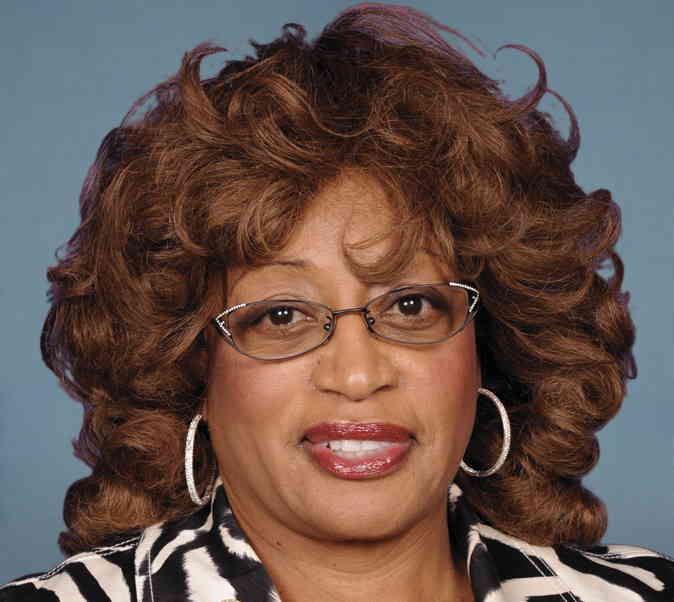
JACKSONVILLE, FL – After former Congresswoman Corrine Brown was found guilty of multiple counts of fraud and falsification of tax records, her defense team quickly moved for acquittal on all charges, arguing that while her co-defendants both admitted their own guilt, neither actually accused Brown of doing anything wrong.
Brown was found guilty of using a fake charity, One Door for Education, as a personal slush fund for enriching herself, Wiley, family members and her former chief-of-staff Ronnie Simmons. The jury also found her guilty of lying on financial disclosure forms and filing false tax returns. Brown maintains her innocence. Both Wiley and Simmons admitted their guilt and entered into plea agreements with the government.
The motions filed by Brown’s defense attorney, James W. Smith III, hit on two major points: that the evidence did not establish Brown’s personal guilt of any wrongdoing, and that the Judge was wrong to remove a juror for who told the other jurors during deliberations that the Holy Spirit told him Brown was not guilty.
THE EVIDENCE AGAINST BROWN
Unfortunately for Brown, most of it is circumstantial– that kind of evidence that suggests someone did something even though there is no direct proof. While Smith repeatedly stresses in his motion that the testimonies of Simmons and Wiley don’t fault Brown for any wrongdoing– he has called his client a victim of “guilt by association” when it comes to the One Door “charity”– the evidence is very suggestive. Should he win a retrial on either argument– the removal of the juror issue seems more likely– he will have to again confront the more damaging testimony of Brown’s former congressional staffer Von Alexander, who had been with Brown for 15 years.
Alexander testified that Brown regularly handed her blank One Door for Education checks and directed her to make the checks out to Alexander’s company, The Alexander Agency.
Alexander testified that she would then take those blank checks to chief of staff Ronnie Simmons who forged Wiley’s signature and inserted check amounts. She said Brown would then direct her to cash those checks and put the money directly into her [Brown’s] personal bank account. Alexander said she did what she was directed to do because she “was not in a position to tell [Brown] no.”
Alexander’s testimony would seem to poke holes in the defense’s argument that Simmons was the sole wrong-doer, taking advantage of an aging and trusting Corrine Brown who had no idea anything illegal was going on, using her bank accounts for improper purposes without her permission. But maybe not. At least two of the jurors thought the evidence failed to establish Brown’s guilt.
Prosecutors, however, argue that “[Brown’s] motion … fails to acknowledge that… she directed [Simmons] to give her cash that she raised for One Door ….”
JUROR 13 AND THE HOLY SPIRIT
Brown’s attorney argues that Judge Corrigan erred when he removed a juror (Juror #13) who allegedly told the other jurors that before the trial the Holy Spirit told him Brown was innocent, and that after listening to the evidence he remained convinced she was. The second time he said this during deliberations, Juror #8 slipped a note to the judge.
The note Juror 8 wrote to the Judge about Juror 13
The judge called the Holy Spirit “an external force” used by the juror in making his decision, and as such an improper influence subjecting him to removal.
Prosecutors said Judge Corrigan made the right call, arguing that the juror based his decision on spiritual revelation rather than the evidence and facts presented in the case.
The juror himself said that he did consider the evidence, but then he kept talking:
“I told them that in all of this, in listening to all the information, taking it all down, I listen for the truth, and I know the truth when the truth is spoken. So I expressed that to them, and how I came to that conclusion …. I told — I told them that — that I prayed about this, I have looked at the information, and that I received information as to what I was told to do in relation to what I heard here today — or this past two weeks.”
And where did he get that information? “My Father in Heaven.”
“My religious beliefs are going by the testimonies of people given here, which I believe that’s what we’re supposed to do, and then render a decision on those testimonies, and the evidence presented in the room,” the juror said.
After all this, odds are the next time he serves on a jury he’ll keep his discussions with the Holy Spirit to himself. But there is a significant issue at play heif a juror prays for guidance before voting yea or nay, isn’t that okay? And isn’t that also listening to an “external force?” So wouldn’t every religious person be potentially unfit for jury duty because they might pray– silently– for guidance? Guess we’ll have to wait and see.
Judge Corrigan said he will issue his decision in writing, but did not say when. If he rules in favor of the prosecution, Brown will be sentenced in accordance with the findings of guilt.
Transcript of the inquiry into Juror 13’s statements about the Holy Spirit

